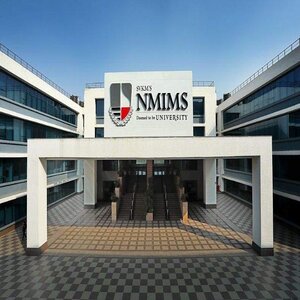NMIMS School of Design collaborates with Design Laboratory at Harvard T.H. Chan School of Public Health for Global Ethnic Study
 NMIMS School of Design (SOD), a leading institute for future-scoped design education, has partnered with Design Laboratory (D-Lab), a collaborative initiative by Harvard T.H. Chan School of Public Health (HSPH) aimed at the application of design frameworks and methods to address the behavioral issues influencing public health, for Remember Now, a research project to gather data that can help individuals and organizations prepare better for future pandemics. Fourteen students from SOD’s B. Des. (Humanising Technology) program participated in the study as field researchers, applying remote ethnography methods to gather data about how people are living, learning, working, and playing while coping with the COVID-19 pandemic, and to identify key barriers and drivers of behavioural change that could lead to meaningful insights. The research was undertaken with the guidance of Prof. Manisha Phadke, Prof. Sameer Tendulkar, and Dr. Shreya Maulik, and in compliance with Harvard’s protocols.
NMIMS School of Design (SOD), a leading institute for future-scoped design education, has partnered with Design Laboratory (D-Lab), a collaborative initiative by Harvard T.H. Chan School of Public Health (HSPH) aimed at the application of design frameworks and methods to address the behavioral issues influencing public health, for Remember Now, a research project to gather data that can help individuals and organizations prepare better for future pandemics. Fourteen students from SOD’s B. Des. (Humanising Technology) program participated in the study as field researchers, applying remote ethnography methods to gather data about how people are living, learning, working, and playing while coping with the COVID-19 pandemic, and to identify key barriers and drivers of behavioural change that could lead to meaningful insights. The research was undertaken with the guidance of Prof. Manisha Phadke, Prof. Sameer Tendulkar, and Dr. Shreya Maulik, and in compliance with Harvard’s protocols.
The information gathered during the study will facilitate the design of objects, services and environments with built-in abilities to detect harmful pathogens, to support people in their daily lives. Remember Now is one of three projects under the D-Lab initiative, Whole Life: Designing Life After COVID-19, which also includes Sketch Tomorrow, a series of brainstorming sessions that leverages expert experience and data from Remember Now to ideate solutions, and Prototype Future, which aims to plan strategies to implement the ideas.
Prof. Manisha Phadke, Director, NMIMS School of Design, said, “We believe that a designer's primary duty is to produce thoughtful, long-lasting designs that meet societal needs. As we all are fighting with the second phase of the pandemic, and have no idea how many days or months it will take to get back to some semblance of normal, it is incumbent upon the design community to come together and field the challenge of creating processes, services and products that will take into account the prospect of a changed world and all inherent risks. We are proud of our students for their commitment and diligence towards the greater good, and their single-minded focus on producing research that will power a better future for all.”
"Collaborating with the faculty and students of the NMIMS School of Design has been productive and delightful. The quality of their education prepared them to be valuable partners with the 14 other research groups around the world", said Patrick Whitney, Core Faculty, D-Lab & Professor in Residence, Department of Health Policy and Management, Harvard T.H. Chan School of Public Health.
"When the NMIMS team joined, we knew high quality research would be conducted. As this initiative advances, we look forward to continue our collaboration, " added André Nogueira, Core Faculty, D-Lab & Associate Researcher & Instructor, Harvard T.H. Chan School of Public Health.
The idea is to use this work as a foundation for improving people's well-being and assisting organizations in positioning themselves better to combat the next pandemic
The research undertaken by SOD students for Remember Now has shed light on the Indian diaspora's diversity of cultural backgrounds and various prejudices. Learnings included the various conditions that influence how people interact with one another, how effectively they are able to adapt their lives to new public health protocols, the various ways people are currently incorporating rituals and celebrations into their lives, and their capacity to revisit various health aspects of their lives.
The preliminary findings have been useful in better understanding how people from various socioeconomic groups and geographic locations maintain their identity, relationships, and contentment during this unusual period. The idea is to use this work as a foundation for improving people's well-being and assisting organizations in positioning themselves better to combat the next pandemic.

